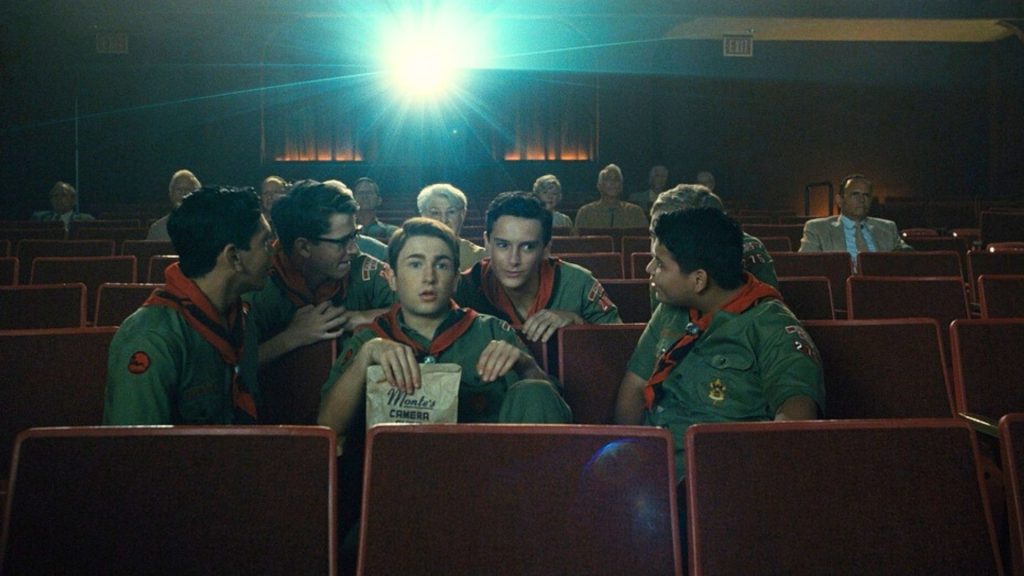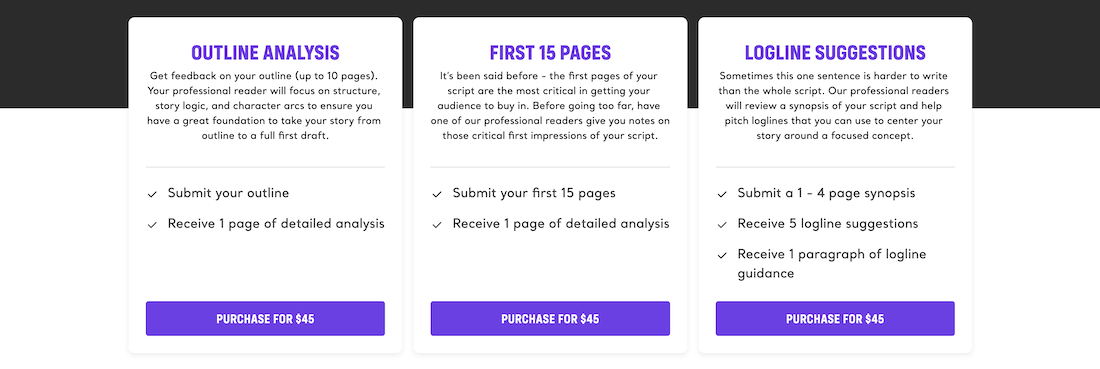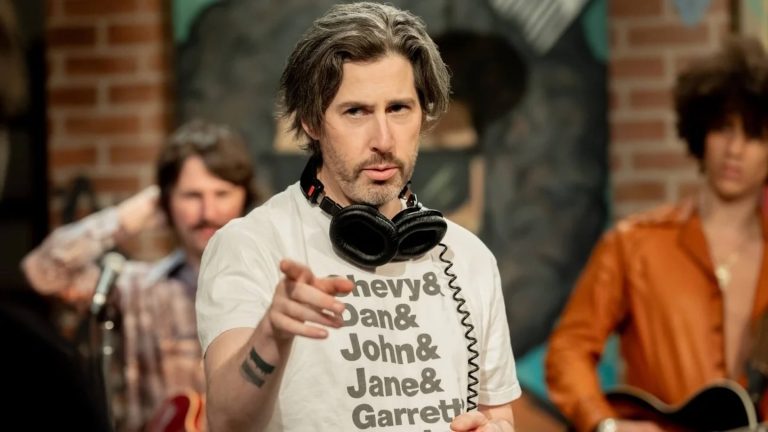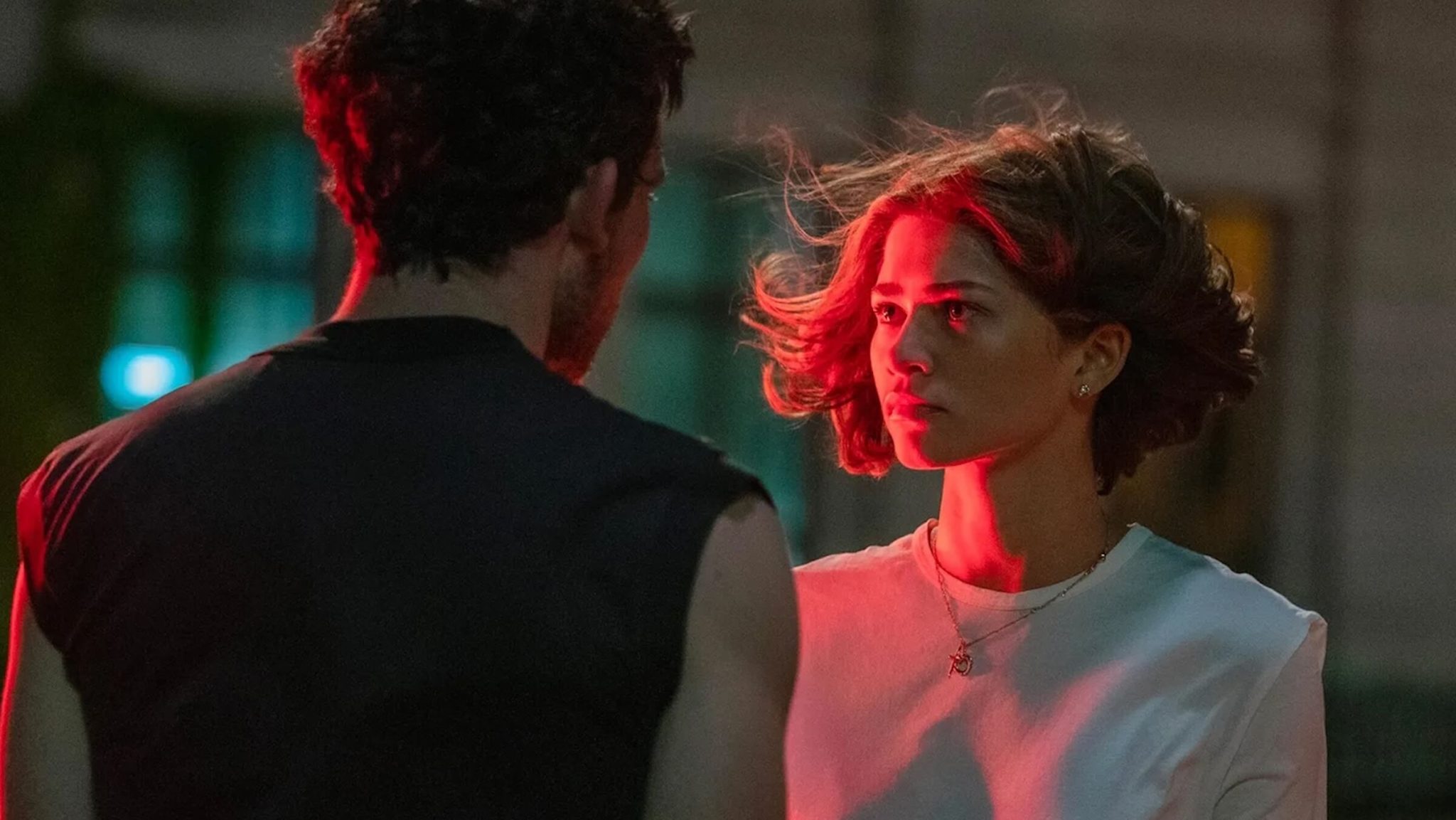5 Things Screenwriters Should Study While Watching Movies

Studying screenwriting books, reading produced screenplays, and watching videos of professional screenwriters talking shop is great. Still, some of the best education for screenwriters can be found in their most common practice: watching movies.
Sure, you need to know:
But the real secret to the sauce is right in front of your eyes when you click that play button.
5 Things to Study While Watching Movies
We're going to start at the moment you click play through the end of the movie.
1. Study Opening Production Company Logo Intros
"Who do I approach to sell my script?"
It's one of the most common questions from novice screenwriters. Most initially want to approach the major studios:
- Sony
- Warner Brothers Discovery
- Disney
- Paramount
- Universal
When you get to know the inner workings of the film industry, you'll quickly see that this approach isn't the way the process works. There's no single individual or department at a major studio that handles unsolicited submissions. That's not the structure of development.
It's the production companies that do all of the leg work. The major studios are there to fund and distribute.
So the most vital element of a screenwriter watching movies—as it pertains to answering the question of who you should approach to sell your script—are the production companies involved in the development and production of the film. And those companies are found in the opening production company logo intros.
You see them before the opening credits roll:
- First comes the major studio logo intro (if applicable).
- Then we see the distributor company logo intro.
- Those are followed by the various production company logo intros.
Note: Sometimes, the distributor and production company intros are switched, depending on the situation.
You'll recognize some of the production and distribution companies—others you won't. But these are the true movers and shakers that you should be trying to connect with.
And as you watch smaller films released on streaming platforms, the companies attached to those movies will likely be easier to access as well.
2. The First Scene
The first scene of a movie is significant to study. It's the attention-grabber. It sets the tone of the film. It usually introduces the genre or at least teases the genre elements to come.
Let's take a look at the first scenes of a couple of iconic movies.
Inglourious Basterds
After you watch this scene, you're hooked. You understand the tone, the atmosphere, and the genre. You're introduced to the villain. And you're teased by one of the protagonists.
Jurassic Park
You already know the movie is about a dinosaur park—the title alone gave that away. After watching this opening scene, you understand that these dinosaurs will be a force to be reckoned with. And the scene only offers us an engaging tease, forcing us to continue watching.
Joker
This compelling opening scene focuses less on concept and more on character. The titular character is unsettling from the get-go. And then, in the accompanying scene, we get a peek into a life that is perceived as pathetic. He's a victim of the world around him. And we want to see how this person becomes the villain of villains—the Joker.
Your first scene in your screenplay is important. It is what will engage the reader and compel them to read further. The old Hollywood screenwriting adage is that you have ten pages to engage a script reader. No, sometimes it's just the first scene.
3. How Soon Is the Protagonist Thrown Into the Conflict?
Different genres will throw characters into conflict at different times. Still, a majority of the time you'll see that feature films get the conflict going as quickly as possible—or at the very least, the conflict will be teased to engage the audience.
Characters will be introduced in their ordinary world briefly. We'll see a glimpse of their everyday life before the conflict hits them. But then it's time to get things moving.
You need to do that in your screenplays as well:
- Study movies that are similar in genre and tone to your cinematic story.
- Timecode how quickly the conflict of the concept hits the protagonist.
- Understand that atmospheric slow-burn movies don't represent what sells in the spec script market.
- Introduce your character in their world briefly, and then toss them into the fire (conflict) so the cinematic ride can begin.
4. Look for the Twists, Turns, Plants, and Payoffs
Study how movies set up plants and payoffs through all of the acts of the story. Keep an eye peeled for how the writers and filmmakers misdirected you—offering subtle twists and turns.
It doesn't matter what genre you're writing in. There have to be twists, turns, plants, and payoffs throughout your whole screenplay.
We're not saying you need to turn your drama into an M. Night Shyamalan-level twist fest. You just need to pepper your script with elements that keep the script reader guessing.
- Take us down familiar genre roads, only to suddenly veer off in another direction.
- Plant subtle plot and character elements and pay them off by the end.
- Take risks and give us what we didn't know we wanted.
Read More: Script Apart: ‘Strange Darling’ Screenwriter on the Power of the Midpoint Twist

'The Fabelmans' (2022)
5. How Do You Feel at the End of the Movie?
Catharsis is the feeling we feel after watching movies. You walk out of the theater or stop the movie and feel truly changed or affected.
Sometimes the catharsis you feel has little or nothing to do with you personally, but the movie was crafted so well that you somehow felt placed within the shoes of the protagonist and felt their own catharsis by the end of the film as they either:
- Achieved what they had been striving for against all odds
- Felt some relief from their struggles amidst tragedy.
That's the magic of an amazing screenplay and movie, leaving the reader or the audience truly touched, affected, and sometimes changed—catharsis.
Any script or film can tell a good story with an interesting plot and some compelling characters. But not every script or film can truly leave a lasting mark on that reader or that audience.
Watch movies and see if they have those cathartic moments in the end. And then do your best to do the same in your screenplays as well.
---
Here's your study checklist to come back to when watching movies:
- Study opening production and distribution company logo intros to learn who you should be querying.
- Study the first scenes of movies to learn how you should open your screenplays.
- Study how quickly the protagonist(s) are thrown into the fire of the conflict to learn how you can do the same to yours.
- Study how movies are peppered with twists, turns, plants, and payoffs—big or small—throughout the whole film.
- Study your emotions at the end of a movie and learn from them and how you can affect readers and audiences by the end of your story.
Check out our Preparation Notes so you start your story off on the right track!

Ken Miyamoto has worked in the film industry for nearly two decades, most notably as a studio liaison for Sony Studios and then as a script reader and story analyst for Sony Pictures.
He has many studio meetings under his belt as a produced screenwriter, meeting with the likes of Sony, Dreamworks, Universal, Disney, Warner Brothers, as well as many production and management companies. He has had a previous development deal with Lionsgate, as well as multiple writing assignments, including the produced miniseries Blackout, starring Anne Heche, Sean Patrick Flanery, Billy Zane, James Brolin, Haylie Duff, Brian Bloom, Eric La Salle, and Bruce Boxleitner, and the feature thriller Hunter's Creed starring Duane "Dog the Bounty Hunter" Chapman, Wesley Truman Daniel, Mickey O'Sullivan, John Victor Allen, and James Errico. Follow Ken on Twitter @KenMovies
For all the latest ScreenCraft news and updates, follow us on Twitter, Facebook, and Instagram.
Get Our Screenwriting Newsletter!
Get weekly writing inspiration delivered to your inbox - including industry news, popular articles, and more!



























